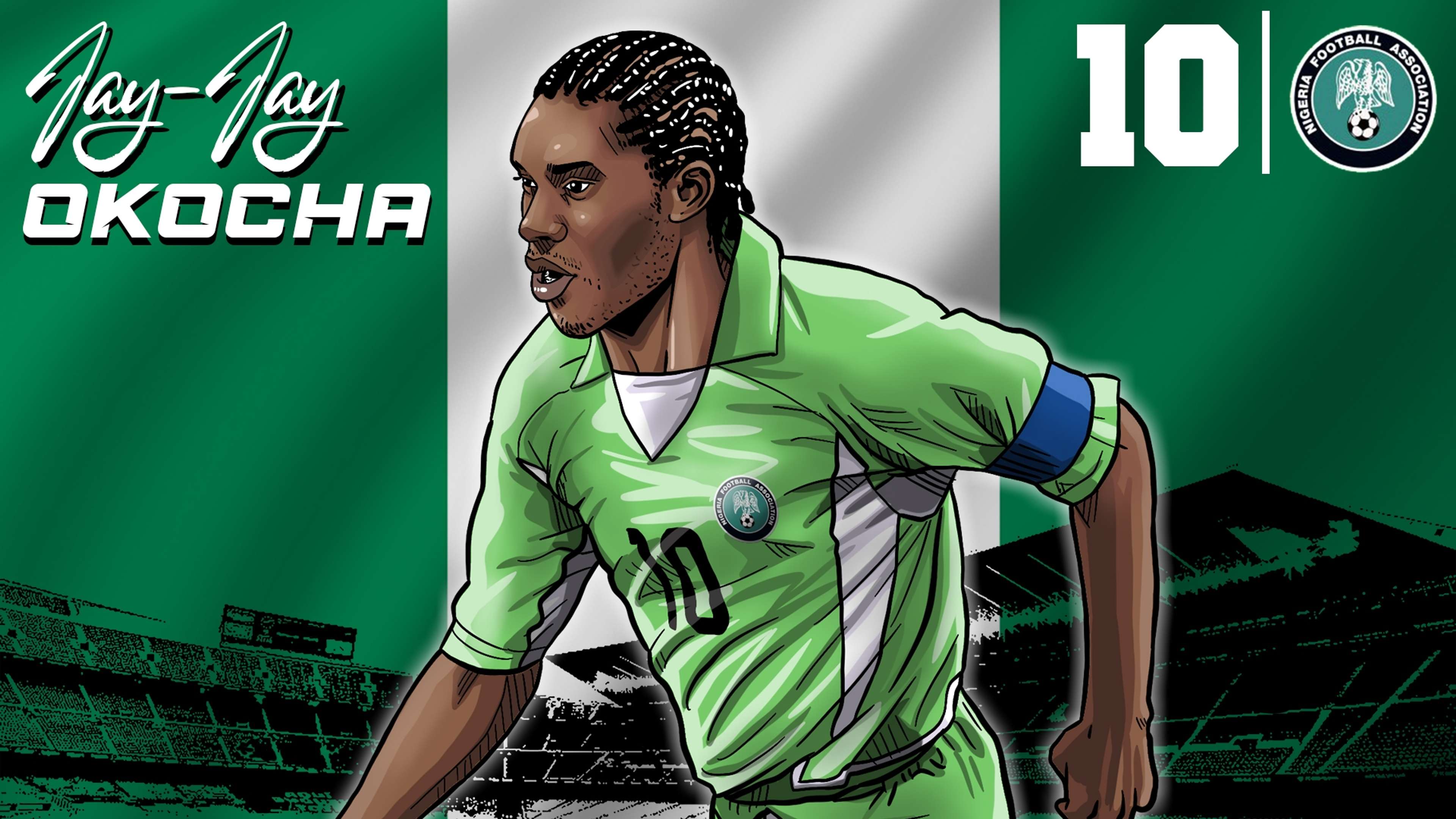Jay-Jay Okocha’s finest hour at the World Cup did not come as the standout player in a successful or ground-breaking team, but rather as a performer of rare individual excellence in a line-up that ultimately flattered to deceive.
Indeed, France 98 represented a premature unravelling of Nigeria’s Golden Generation – the greatest team Africa’s most populous country has ever known – and ultimately a landmark summer for Okocha, who made the Squad of the Tournament.
The Super Eagles approached the ’98 tournament amidst great expectations, with anticipation high back home that the West Africans could at least emulate Cameroon’s feat eight years previously of reaching the quarter-finals.
Nigeria had followed up their second Africa Cup of Nations success in 1994 by reaching the knockouts in their first World Cup two months later, with the likes of Rashidi Yekini, Emmanuel Amunike and Daniel Amokachi starring in the United States.
In 1996, Olympic gold followed – the first ever such triumph for an African team – as Nwankwo Kanu, Victor Ikpeba and Celestine Babayaro began to take more prominent roles in the side.
France, then, was meant to be the Golden Generation’s finest hour, a chance to build on a decade of progress and maybe even realise Pele’s prediction that an African team would win the big one before the year 2000.
 Getty/GOAL
Getty/GOALSadly, the reality fell far short of the heights that were once forecast for that team and, in truth, Nigeria have never since enjoyed the kind of prominence or conjured the same excitement they did on the eve of the 1998 World Cup.
Head coach Philippe Troussier’s dismissal before the competition didn’t help, nor did a series of injuries – not least to Amokachi, Amunike and first-choice goalkeeper Ike Shoronmu – while incoming manager Bora Milutinovic struggled to establish balance in the midfield.
However, whether the Eagles opted for a three-man midfield or a pairing of Sunday Oliseh and Okocha, the latter delivered a series of inspired showings, on occasion appearing to be on a one-man mission to drag Nigeria through.
In the victory over Spain – a chaotic, joyful clash – Oliseh held the fort while Okocha relished his licence to operate where he pleased, dribbling through the heart of the park, setting up those ahead of him, and using the space effectively to provide an option when out of possession.
It was unpredictable – both the good and bad sides of that coin – but, on the day, Nigeria got away with it, with Oliseh proving to be an inspired foil for Okocha’s one-man masterclass, and it was actually the more defensively minded midfielder who thundered home the winner.
Against a Danish side who packed their own midfield in the last 16, however, the Eagles were unable to repeat the feat and fell to a brutal 4-1 defeat that ended their progress abruptly.
Nonetheless, Okocha was again imperious, delivering one of the great individual performances by an African player at the finals as he constantly sought to pick holes in the Danish backline and inspire his team-mates forward with his fearless brand of football.
 Getty/GOAL
Getty/GOALUltimately, he fell short, and while the ’98 tournament highlighted some of Okocha’s captivating qualities – the technique, the footwork, the instant innovation – it also demonstrated some of the failings that prevented him from ever performing consistently at a major club.
His lack of defensive contribution, particularly against the Danes, left Oliseh utterly overworked in midfield, while his positional fluidity allowed him to trouble sides unexpectedly, but was also due to a lack of discipline to be able to operate effectively within a tactical schema.
While that fine Nigeria team begun to disintegrate, Okocha sought a new home at Paris Saint-Germain, having previously dazzled at Eintracht Frankfurt and Fenerbahce.
It was in Germany that he scored an outrageous solo effort against Karlsruher, when he dribbled the ball in the box, taking it past some defenders twice, before finishing impudently beyond legend-in-the-making Oliver Kahn.
The keeper was completely flummoxed by the Nigerian’s suppleness of movement and quickness of thought, and that spectacular goal won various seasonal accolades for Okocha.
However, as with so many of the highlights of his career, it was an utterly individual exploit.
At Fenerbahce, for example, he developed a reputation as a set-piece expert, able to almost defy physics by contorting the ball beyond a wall or into the tiniest gap between a goalkeeper’s despairing grip and the frame of the goal.
Yet the team struggled, failing to defend the title they’d won in 1996 and watching on as rivals Galatasaray won back-to-back championships.
At PSG, it was a similar story.
 Getty/GOAL
Getty/GOALOkocha entertained supporters with his trademark dribbles and showmanship, but one Intertoto Cup was a meagre reward for a £14 million ($16m) outlay, particularly when one of his predecessors, David Ginola, had wowed supporters while winning serious silverware in the process.
Okocha did at least leave one major legacy in the French capital, later claiming to have played a key role in mentoring a young, precocious wonderkid named Ronaldinho.
"Ronaldinho tried to imitate some of my skills and dribbles," Okocha told On Time Sports. “He was still a young player before I left for England and he joined Barcelona.”
By signing for Sam Allardyce’s Bolton Wanderers in 2002, following his PSG departure and still aged only 28, Okocha essentially abdicated from challenging from the grandest prizes in the sport.
However, the move did lead to another glittering chapter in his career, as he established himself as one of the greatest entertainers in Premier League history.
Bolton fans were keen to remind the rest of the division how Jay-Jay was ‘so good they named him twice’, but the truth is that visiting fans didn’t need to have it pointed out.
Okocha, in a less-pressured environment, was simply so watch-able that he was admired – if not adored – by opposition supporters as well as his own.
A luxury player? Perhaps. But also a real-life fantasy footballer.

